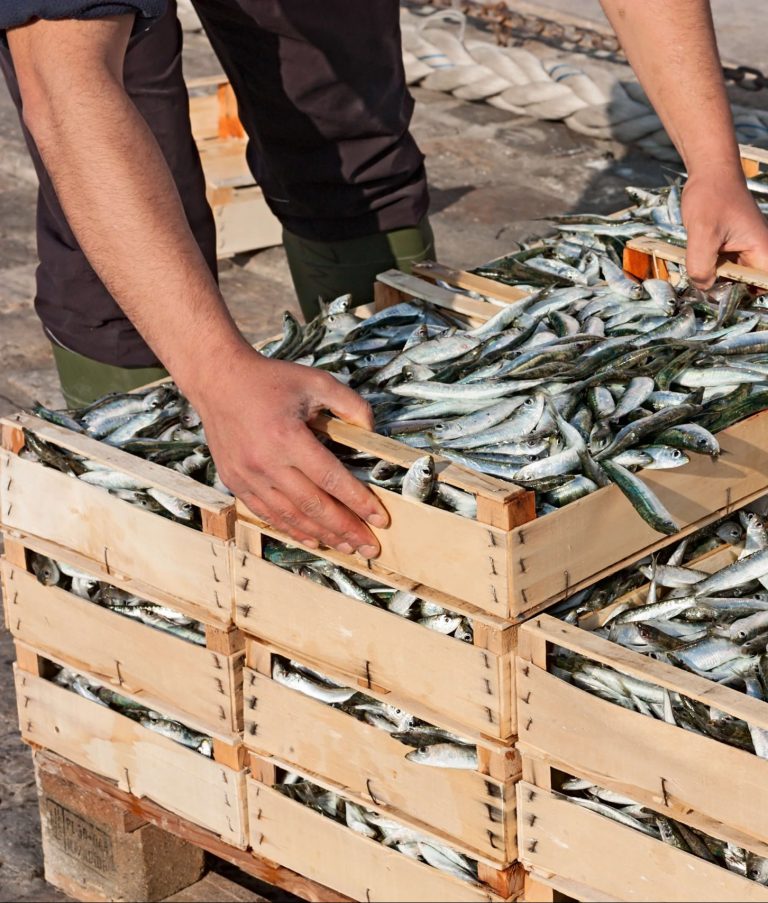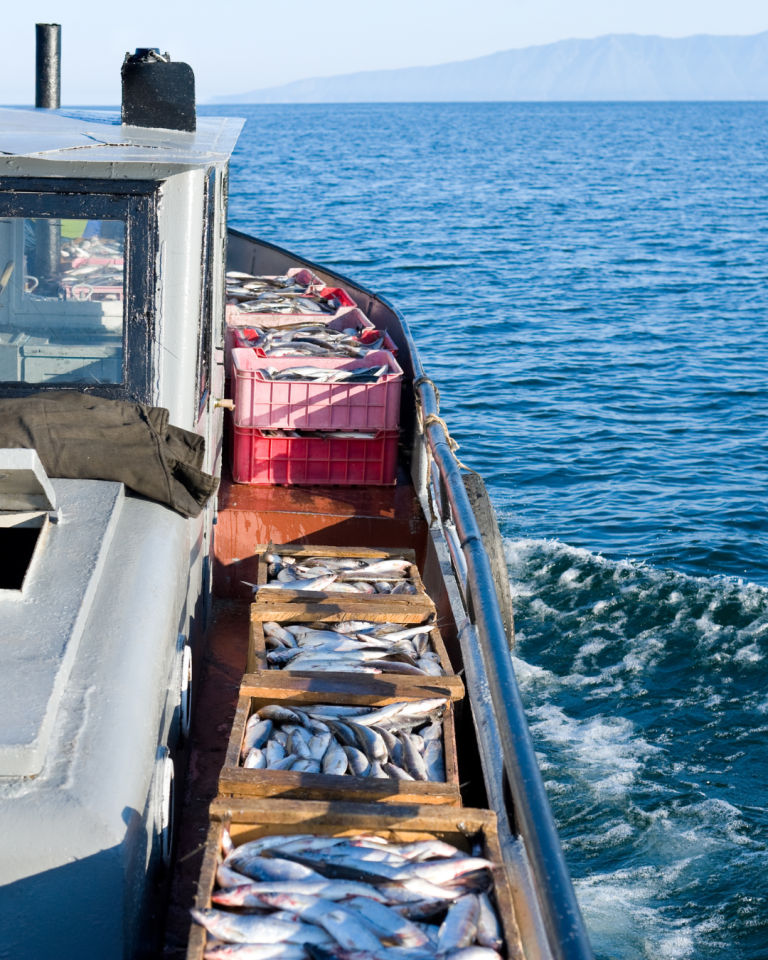The Roadmap for Improving
Seafood Ethics - RISE
Iterate
Update company policies and practices based on findings and lessons learned. Continue to gather data and establish a monitoring, evaluation, and learning program.

Action 01
Assess the efficacy of your company’s human rights due diligence practices and seek opportunities for improvement
Create and implement a process to routinely assess your company’s due diligence
- Remember that HRDD doesn’t happen overnight. It is a continuous process, built and improved over time. Iteration is not only about finding successes and areas for improvement but also increasing efficiency and continuing the process of embedding HRDD into your strategy, culture, and operations.
- Reference the KPIs, time-bound goals, and timelines to evaluate the successes and shortcomings of your HRDD program.
- Make this review holistic and include both what is and is not working in the program.
- Use information gathered through complaints, grievances, investigations, and reports as a reality test for the rigor of your program. This outside data is invaluable in terms of ensuring that your program is meeting its goals.
- Double-check that the internal metrics and KPIs you set to assess the effectiveness of your company’s due diligence program match your company’s HRDD goals.
- Monitoring and evaluation should be systematic; check that all key indicators function as intended and provide the data needed to evaluate and improve your program.
Pose critical questions to your internal teams
- Connect internally with those who have supported company HRDD efforts so they can share their perspective on the efficacy of your HRDD program. Ask:
- Are there company practices that are getting in the way of improvements?
- Are there certain suppliers or supply chains that need more resources?
- What would you adjust about our prioritization process?
- Are there products or supply chains that are just too risky for us to source?
- What other departments need to be involved?
Review human rights best practices and trends
- Keep up to date on best practices in HRDD, traceability, and broader due diligence through platforms such as RISE, published articles and reports, webinars, and engagement with collaborators.
- Research, periodically, changing legal requirements as well as evolving demands from social advocacy groups and other supply chain partners.
- A Step by Step Guide to Monitoring and Evaluation from EVALOC
- Monitoring & Evaluation: Some Tools, Methods & Approaches from World Bank
Tips
- Involve internal stakeholders and departments when revising or developing new metrics, which will cultivate buy-in across the company and ensure metrics are well understood.
- Leverage expertise from external organizations and advisors (such as FishWise) that specialize in this work to assess the effectiveness and quality of your supply chain initiatives. When evaluating outside support, consider the group’s experience working with industry and across supply chains, specifically in the area of human rights.
- Consult with actors across your supply chain that participated in your HRDD process when you assess effectiveness. It is common for corporate leadership to have a limited view of the realities in other parts of the supply chain.
Example
Tool: Global Health Partnership Template
This template is a straightforward tool for developing a monitoring and evaluation program. The template includes steps to help you work through the data and evaluation process for your HRDD goals, beginning with context, such as: the sources of information, the baseline state of your HRDD program, data-gathering methods and data use, costs, and frequency and time frames for monitoring data collection.
To apply this template for the seafood industry, please see this example.
Action 02
Using the results from your HRDD program review, prioritize changes, align resources, and improve supply-chain initiatives
Develop an improvement plan for your HRDD program
- Present your review findings to executive leadership and other relevant teams to keep them informed about changes to the HRDD program and to ensure continued support.
- Revise HRDD goals, timelines, and policies to align with the findings of your review.
- Involve members who helped develop the original program KPIs to ensure program continuity and consistency.
- Integrate new best practices based on changing industry standards and regulatory requirements.
- Work with key team members across your company to realign resources based on your findings, adjusting budgeting and personnel to reflect changes in priority or timelines.
Improve supply chain initiatives tied to your HRDD program
- Communicate relevant results of your annual HRDD program review with your suppliers and key external stakeholders.
- Solicit feedback about your company’s HRDD process and human rights initiatives from external stakeholders, including:
- Workers, trade unions or other worker associations, and related civil society organizations
- Supply chain partners (remembering to work through your tier 1 suppliers when you engage those further up the chain)
- Review the “Engage” step for best practices on working with external stakeholders.
- Leverage supplier and stakeholder feedback, as well as results from your internal HRDD program review, to improve your supply chain human rights activities and update practices for more effective projects, pilots, and initiatives.
- “Refining Your KPIs for Success” from Intrafocus
Tips
- Include the most relevant KPIs, not just those that are easiest to measure, when revising them.
- Avoid rushing this process. Proper monitoring and evaluation should take weeks or months, not days. Continue with your regular HRDD activities while you are making improvements to your overall process.
Optimize Your Company’s Path

Retailers and Brands
Retailers and brands have an important leadership and norm-setting role that benefits their own business and cascades responsible practices throughout the supply chain.

Suppliers
Given suppliers' unique access to operations throughout the supply chain, they can have a critical influence on the implementation of best practices across the industry.

Processors
Because of the large workforces typically employed in these facilities, processors can have an outsized impact on human rights and labor conditions.

Producers
Because producers bring seafood into a supply chain, their good practices play a fundamental role in improving working conditions and upholding a socially responsible seafood industry.
